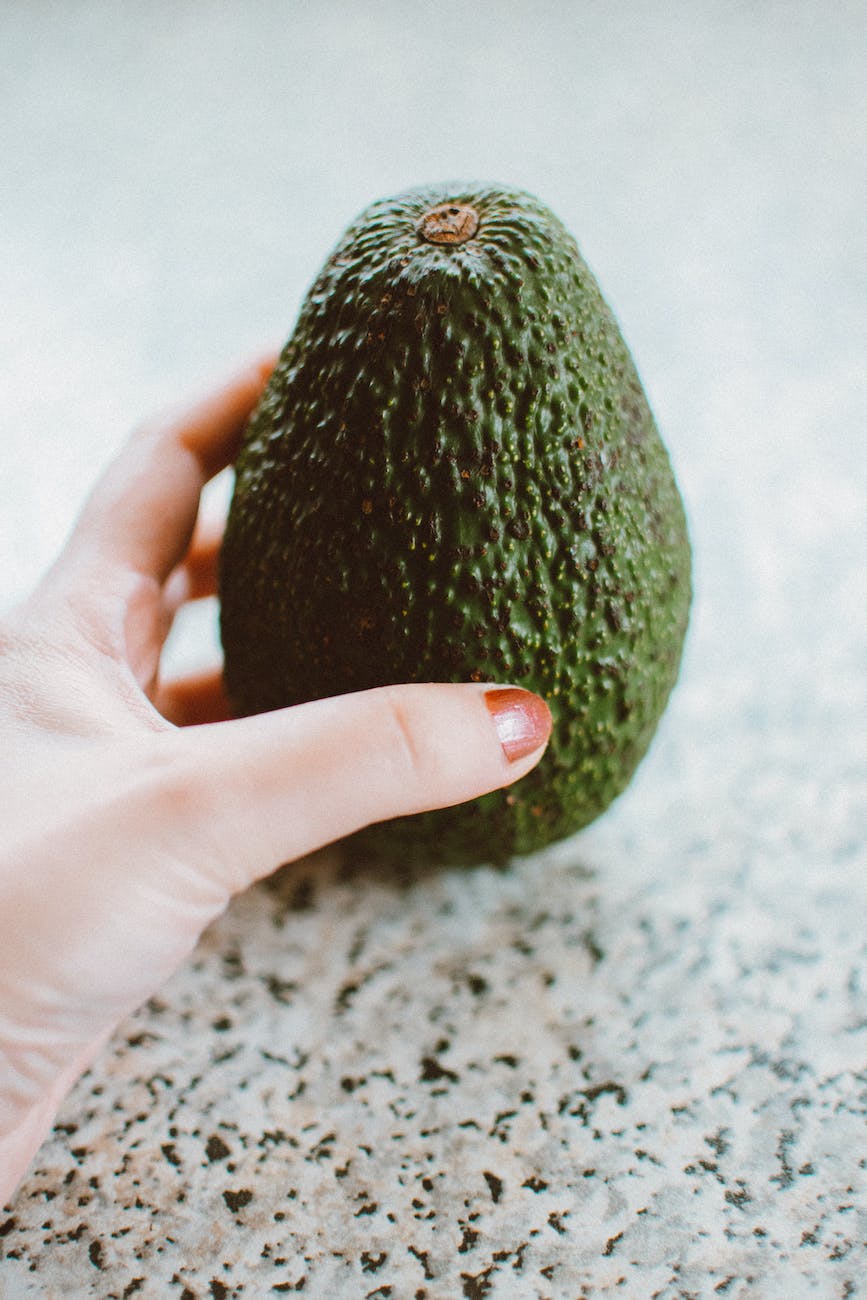
Cordyceps, a type of fungus known for its potential health benefits, has a rich and intriguing history. Originating in traditional Chinese and Tibetan medicine, cordyceps has long been used as a natural treatment for various ailments. From enhancing athletic performance to boosting immunity, cordyceps offer an array of benefits, which we will further delve into in this article.
Diverse Health Benefits of Cordyceps
Cordyceps and Immune System Boost
Research suggests that cordyceps can positively impact our immune system. They are believed to enhance cellular immunity by increasing the activity of white blood cells, which are vital for preventing disease and fighting off infections.
Respiratory Health and Cordyceps
Thanks to its anti-inflammatory properties, cordyceps has been used to help people with respiratory issues. This superfood may improve respiratory health by increasing oxygen uptake and enhancing lung capacity, thus proving beneficial for those with conditions like asthma or bronchitis.
Cordyceps for Enhanced Athletic Performance
Cordyceps has gained popularity among athletes due to its supposed ability to increase energy levels and endurance. While more research is needed, some studies suggest cordyceps can improve athletic performance by enhancing aerobic capacity and mitigating fatigue.
Benefits of Cordyceps for Male Health
Cordyceps, a rare and exotic mushroom used in traditional Chinese medicine, is increasingly catching the attention of the modern world due to its potential health benefits. Its unique properties have led to its use in supporting various aspects of health, including immunity, stamina, and longevity. However, one of the key areas of interest lies in its benefits for male health. In this section, we delve into the positive effects cordyceps may have on male health, vitality, and overall well-being.
Enhancing Athletic Performance
The potential of cordyceps to enhance athletic performance is increasingly being recognized. It’s believed to improve energy, endurance, and stamina, which are key for athletic performance. Studies suggest that cordyceps can increase the body’s production of adenosine triphosphate (ATP), a molecule that delivers energy to our muscles. This could help male athletes push harder and perform better in their physical activities.
Boosting Libido and Sexual Function
One of the traditional uses of cordyceps in Chinese medicine is to enhance libido and improve sexual function. It’s thought to improve blood flow, which can potentially increase erectile function. Some research also suggests that cordyceps can boost testosterone levels, further supporting sexual health and performance in men.
Supporting Prostate Health
Emerging research suggests that cordyceps may have potential benefits for prostate health. Inflammation and enlargement of the prostate gland, a common problem for men as they age, can lead to uncomfortable symptoms. While further studies are needed, some evidence suggests that the anti-inflammatory properties of cordyceps could be beneficial in managing these symptoms.
Fostering Fertility
Male fertility issues can be complex, but cordyceps may offer some help in this area. Some studies indicate that it might improve sperm quality and increase sperm count, thereby potentially enhancing male fertility.
Cardiovascular Health
Cordyceps might play a role in supporting cardiovascular health by improving heart function and circulation. This can be particularly beneficial for men as heart disease is a leading cause of death in males. Cordyceps’ potential ability to lower bad cholesterol levels while raising good cholesterol further supports heart health.
Stress and Fatigue Reduction
Cordyceps is known as an adaptogen, a substance that helps the body better respond to stress. For men leading high-stress lives, cordyceps could potentially offer support in managing stress and reducing fatigue.
While cordyceps shows promise in these areas, it’s essential to remember that more research is needed. Also, dietary supplements should not replace a balanced diet and a healthy lifestyle. If you’re considering adding cordyceps to your regimen, it’s best to consult with a healthcare provider.
Benefits of Cordyceps for Female Health
Cordyceps, a unique medicinal mushroom utilized for centuries in traditional Chinese medicine, is gaining widespread attention for its diverse health benefits. Its potential to enhance vitality, immunity, and longevity is well-known. Interestingly, cordyceps is also believed to offer several benefits specifically for women. This section explores how cordyceps can contribute to female health, well-being, and vitality.
Supporting Reproductive Health
Cordyceps has been used traditionally to support reproductive health in women. Some studies suggest that it can help maintain hormonal balance, which is crucial for various aspects of women’s health, including menstrual health and fertility.
Enhancing Libido
Like in men, cordyceps is believed to have potential libido-enhancing effects in women too. It is thought to increase blood flow, which can enhance sexual desire and response. Some research also suggests that cordyceps can help manage menopausal symptoms, including a decline in libido.
Boosting Energy and Reducing Fatigue
Cordyceps is also known for its potential to boost energy and reduce fatigue. This could be particularly beneficial for women who juggle multiple roles and responsibilities and often feel drained or fatigued.
Promoting Heart Health
Heart disease is a significant concern for women’s health. Cordyceps might contribute to heart health by improving heart function and blood circulation. Its potential ability to lower “bad” cholesterol levels and increase “good” cholesterol could further contribute to cardiovascular health.
Anti-Aging Properties
Cordyceps has been used in traditional medicine as a tonic for longevity and vitality. Some research suggests that cordyceps may have anti-aging effects, possibly due to its high antioxidant content. This could help protect the skin from damage, promoting a youthful appearance.
Stress Management
As an adaptogen, cordyceps helps the body adapt to stress, potentially supporting mental health and wellbeing in women. Its potential to improve sleep quality can also be beneficial for women experiencing sleep disturbances, a common issue during menopause.
Although cordyceps shows potential in these areas, it’s crucial to note that more research is needed. Dietary supplements should not be a replacement for a balanced diet and a healthy lifestyle. If you’re considering adding cordyceps to your regimen, it’s best to consult with a healthcare provider.
Special Cordyceps Species and Their Benefits
Cordyceps Sinensis and Its Benefits
Cordyceps Sinensis, one of the most well-known species of this fungus, has been used in traditional Chinese medicine for centuries. It’s believed to have anti-aging properties, boost immunity, and improve liver function and kidney health.
Cordyceps Militaris and Its Unique Benefits
Cordyceps Militaris is another popular species that’s touted for its health benefits. This species is particularly rich in cordycepin, a compound believed to have anti-inflammatory, antioxidant, and anti-tumor properties.
The Power of Caterpillar Fungus (Ophiocordyceps Sinensis)
Ophiocordyceps sinensis, also known as the caterpillar fungus, is another species of cordyceps. It’s thought to have a range of health benefits, from boosting immune function to enhancing athletic performance and improving liver health.
Exploring Cordyceps Supplements
Cordyceps in Capsules: Benefits and Uses
Cordyceps capsules are a convenient way to enjoy the benefits of this superfood. These capsules can provide an energy boost, support heart health, and even aid in managing type 2 diabetes.
The Magic of Cordyceps Powder
Cordyceps powder can be a great addition to your diet. It can be mixed into smoothies, teas, or your favorite dishes to provide an array of health benefits. Some potential advantages include increased stamina, improved immune function, and better respiratory health.
Benefits of Cordyceps Tea
Cordyceps tea is another way to reap the benefits of this potent fungus. Regular consumption of this tea may help improve overall wellness, enhance athletic performance, and support immune health.
Cordyceps tea is not your usual cup of tea. While it brings warmth and comfort like any other tea, it also presents a host of potential health benefits. With its rich compounds, this medicinal brew stands out as a unique addition to your wellness routine. Here’s what you can potentially gain from Cordyceps tea:
- Immune System Boost: Cordyceps contains bioactive polysaccharides, which are thought to stimulate the immune system. Regular consumption might help in fortifying your body’s natural defense mechanisms.
- Energy Enhancement: The adaptogenic properties of Cordyceps can potentially assist in increasing energy levels and reducing fatigue. It’s like your regular morning coffee, but it packs a lot more punch!
- Heart Health: Certain studies suggest that Cordyceps may support heart health by potentially reducing cholesterol levels.
- Respiratory Function: Cordyceps has been traditionally used in Chinese medicine to aid in respiratory issues. It’s believed to enhance the efficiency of oxygen utilization, which can support the health of your lungs.
- Stress Relief: As an adaptogen, Cordyceps might help manage stress levels, promoting a sense of calm and relaxation.
You might be thinking, “Sounds fantastic, but how do I prepare this magical tea?” Don’t worry, we’ve got you covered. Here’s a simple guide on how to make Cordyceps tea:
Ingredients:
- 1 teaspoon of Cordyceps powder (or a Cordyceps tea bag, if available)
- 1 cup of boiling water
- Honey or lemon to taste (optional)
Steps:
- Prep the Tea: Put the Cordyceps powder or tea bag into a cup.
- Add Boiling Water: Pour boiling water into the cup and cover it. Allow the tea to steep for about 15 minutes to ensure that all the beneficial compounds are released.
- Add Flavor: If desired, add honey or lemon to your tea for an added kick of flavor.
- Enjoy: Sip your Cordyceps tea slowly, savoring the unique flavor while soaking in its potential health benefits.
Remember, as with any supplement or health product, it’s essential to consult your healthcare provider before integrating Cordyceps tea into your daily routine, especially if you’re pregnant, nursing, have underlying health conditions, or are on medication.
Cordyceps Extract: A Concentrated Health Booster
Cordyceps extract is a concentrated form of the fungus that can provide a potent health boost. From enhancing lung health to improving liver function and boosting immune health, the extract offers various benefits.
Cordyceps Pills: Easy and Effective
Cordyceps pills offer an easy and effective way to include this superfood in your diet. These pills are designed to provide you with the myriad of health benefits associated with cordyceps, from immune support to enhanced athletic performance.
Combining Cordyceps with Other Superfoods
Reishi and Cordyceps: A Powerful Health Combo
When cordyceps is combined with reishi, another superfood mushroom, they create a powerhouse of health benefits. This combination may help enhance immune function, support heart health, and even aid in managing stress and promoting relaxation.
Lion’s Mane and Cordyceps: Benefits of the Duo
The combination of cordyceps and lion’s mane mushroom offers an array of health benefits. From supporting brain health and cognitive function to boosting immunity and enhancing athletic performance, this duo packs a potent health punch.
Chaga, Reishi, and Cordyceps: The Ultimate Health Trio
Combining cordyceps with chaga and reishi mushrooms creates a potent health-boosting trio. This combination can provide a wealth of benefits, including improved immunity, enhanced energy, and support for overall well-being.
Side Effects and Potential Risks of Cordyceps
Understanding Cordyceps Side Effects
While cordyceps is generally considered safe, it’s essential to be aware of potential side effects. Some individuals may experience digestive upset, dry mouth, or mild nausea. If you have any existing medical conditions or are on any medication, it’s best to consult a healthcare professional before starting any new supplement regimen.
Special Considerations and Precautions
As with any supplement, it’s essential to use cordyceps responsibly. While it offers a range of health benefits, overuse can lead to unwanted side effects. Always stick to the recommended dosage and consult with a healthcare provider if you have any concerns.
Frequently Asked Questions about Cordyceps
1. What are the primary health benefits of Cordyceps?
Cordyceps is a type of medicinal mushroom known for its potential health benefits. These include boosting the immune system, enhancing physical performance, supporting heart health, promoting anti-aging, managing stress, and aiding in maintaining hormonal balance. It’s also suggested to have potential benefits specifically for men’s and women’s health.
2. Can Cordyceps aid in weight loss?
While more research is needed to confirm these findings, some studies suggest that Cordyceps could help regulate body metabolism, which might indirectly aid in weight loss. However, it’s essential to pair any supplement with a balanced diet and regular physical activity for sustainable weight management.
3. Are there specific benefits of Cordyceps for men and women?
Cordyceps has been linked to benefits for both men and women. For men, Cordyceps could potentially enhance physical performance, support reproductive health, and boost libido. For women, it might help maintain hormonal balance, reduce fatigue, manage stress, and support heart and skin health.
4. Can Cordyceps boost energy levels?
Yes, Cordyceps is often consumed for its potential to enhance vitality and reduce fatigue. It’s known to potentially improve the body’s use of oxygen, which could enhance energy levels.
5. Does Cordyceps have side effects?
While Cordyceps is generally considered safe for most people, it might cause mild side effects in some cases, like upset stomach, dry mouth, or nausea. People with auto-immune diseases, bleeding disorders, or those on certain medications should consult a healthcare provider before consuming Cordyceps.
6. How can I include Cordyceps in my diet?
Cordyceps can be included in your diet in various forms, such as capsules, powder, or tea. It’s also found in some health and energy drinks. Always follow the manufacturer’s instructions or your healthcare provider’s advice when consuming Cordyceps as a supplement.
7. What is Cordyceps good for?
Cordyceps is used in traditional medicine for its potential health-promoting properties. It’s suggested to support immune function, heart health, energy levels, and stress management, among other benefits. However, more research is needed to fully understand its effects.
Always consult your healthcare provider before beginning any new supplement regimen, including Cordyceps, to ensure it’s suitable for your specific health needs and circumstances.
The Bottom Line: Is Cordyceps Good for You?
Weighing the benefits and risks, it’s clear that cordyceps can be a potent addition to your health regimen. However, as with any supplement, it’s essential to use it responsibly and in moderation. Always consult with a healthcare provider before starting any new supplement, especially if you have any pre-existing health conditions.
Remember, a balanced diet and healthy lifestyle are the foundations of good health. Cordyceps can supplement these foundations, but it cannot replace them. Stay healthy and happy!














